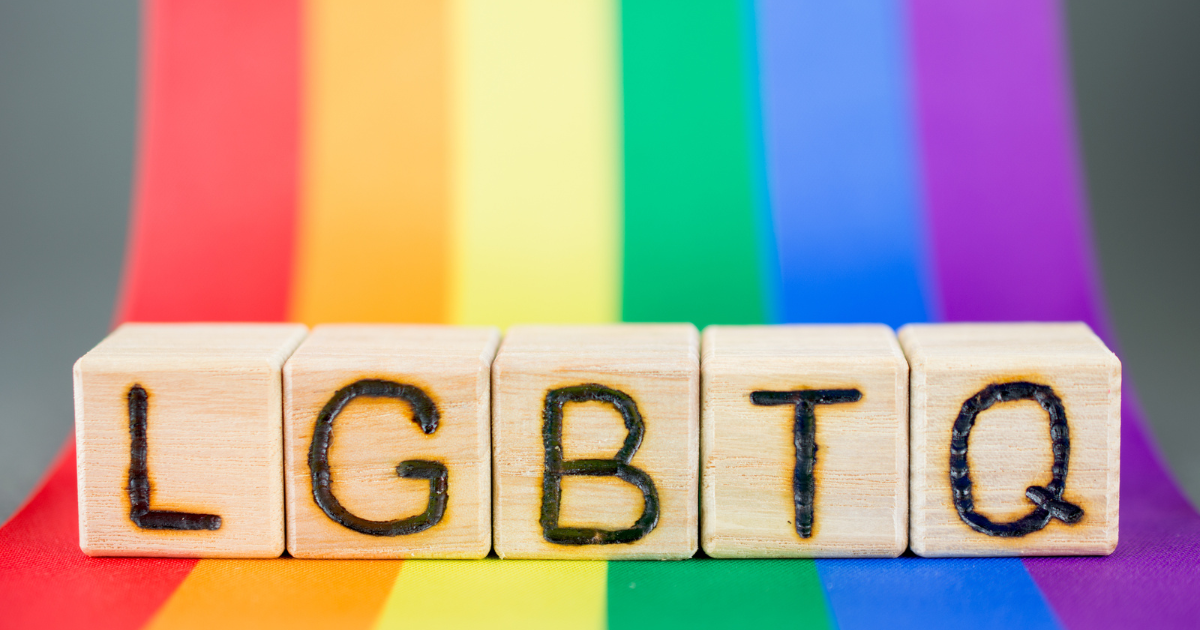
Deconstructing Faith and the LGBTQIA+ Community
Tamar Medford
It doesn’t take much to know that I have a strong faith background when you meet me. I grew up with parents that were pastors in a well-known conservative evangelical non-profit denomination. This was the primary reason it took me until my 40s to come out as gay. I spent years deconstructing the religion I had been taught and reconstructing the faith that would see me through the rest of my life.
Deconstruction is hard. It’s taboo within the faith community. The fear of eternal salvation being in the balance is daunting, which is why it took me so long to accept the conclusions I came to.
Deconstructing faith in the LGBTQIA+ community refers to the process of re-evaluating and questioning traditional religious beliefs and practices that have been used to discriminate against and marginalize LGBTQIA+ individuals. For many community members, this can mee finding ways to reconcile their faith with their identity or finding new, more inclusive spiritual practices.
This process can be challenging, as many religious traditions have been used to justify discrimination and violence against LGBTQIA+ people. However, many religious leaders, organizations, and congregations have begun to re-examine their beliefs and practices and have become more inclusive and accepting of the community.
For some community members, this process may also involve leaving their faith communities behind and finding a new spiritual practice or no spiritual practice at all. For others, it may include creating new faith communities that are specifically inclusive and affirming LGBTQIA+ people.
Deconstructing faith and spirituality can be a difficult and personal journey, but it can also be an essential step toward self-acceptance and healing for many LGBTQIA+ individuals.
The journey can look different for everyone. The critical points for me to figure out may not be the same for others. Each journey is unique. Here are five steps that can help you through yours.
- Education and self-awareness: Learn about your faith’s history and teachings and how they came to be. Likely, if you are questioning them, at some point (or many), they have been used to discriminate against LGBTQIA+ people. This can include researching different interpretations of religious texts and teachings and seeking out the perspectives of LBGTQIA+ individuals and allies within your faith community.
- Reflection and personal examination: Take time to reflect on your beliefs and experiences and how they relate to your faith. This can include questioning any internalized feelings of shame or guilt that may have been imposed on you because of your identity.
- Finding support: Seek help from other LGBTQIA+ individuals who are also deconstructing their faith and allies within your faith community who can provide guidance and understanding.
- Engage with inclusive and affirming communities: Consider finding new spiritual practices or communities that are inclusive and affirming of LGBTQIA+ people. This can include seeking out LGBTQIA+ inclusive churches or synagogues or exploring other spiritual traditions that may be more accepting of LGBTQIA+ individuals.
- Be patient with yourself: Remember that deconstructing faith is a personal journey that can take time. Allow yourself the space and time to process your thoughts and feelings, and be kind and compassionate with yourself as you navigate the process.
It is important to remember that everyone’s journey is different, and there’s no one-size-fits-all solution when it comes to deconstructing faith. Some people may find themselves drawn to more traditional religious practices, while others may create new spiritual practices that align with their values. When I started looking for a new and affirming church to attend, I struggled to find one that met my style of worship and teaching. I found it difficult at first to find a church that wasn’t super liturgical or formal. I am neither of those things and since I don’t believe we should choose our church based on our sexuality, I struggled for some time. With patience and some research, I pray that you find your faith community to be a part of that works well for all your needs, not just your sexuality. Whatever path you take, the most important thing is to be true to yourself and your beliefs.

12 Responses
You need to take part in a contest for one of the most useful websites on the net. I am going to highly recommend this site!
I want to to thank you for this very good read!! I definitely enjoyed every bit of it. I have you bookmarked to check out new things you postÖ
An intriguing discussion is definitely worth comment. I do think that you ought to publish more on this issue, it may not be a taboo subject but typically people dont speak about such subjects. To the next! All the best!!
Hi! I simply want to give you a huge thumbs up for the excellent info youve got here on this post. I will be returning to your website for more soon.
An interesting discussion is worth comment. Theres no doubt that that you need to write more on this subject matter, it might not be a taboo matter but usually people dont speak about such subjects. To the next! Many thanks!!
I was extremely pleased to discover this site. I need to to thank you for ones time for this particularly wonderful read!! I definitely loved every part of it and i also have you saved as a favorite to check out new stuff on your blog.
Good day! I simply would like to offer you a huge thumbs up for your excellent info youve got here on this post. Ill be coming back to your blog for more soon.
I was extremely pleased to find this website. I need to to thank you for ones time due to this wonderful read!! I definitely loved every bit of it and I have you book marked to check out new stuff in your blog.
Excellent blog post. I absolutely love this site. Keep writing!
I was pretty pleased to discover this web site. I want to to thank you for your time for this fantastic read!! I definitely really liked every bit of it and I have you book marked to see new things on your web site.
Good post. I learn something totally new and challenging on websites I stumbleupon every day. Its always exciting to read articles from other writers and practice a little something from other sites.
Greetings! Very useful advice within this article! Its the little changes that make the most significant changes. Thanks a lot for sharing!